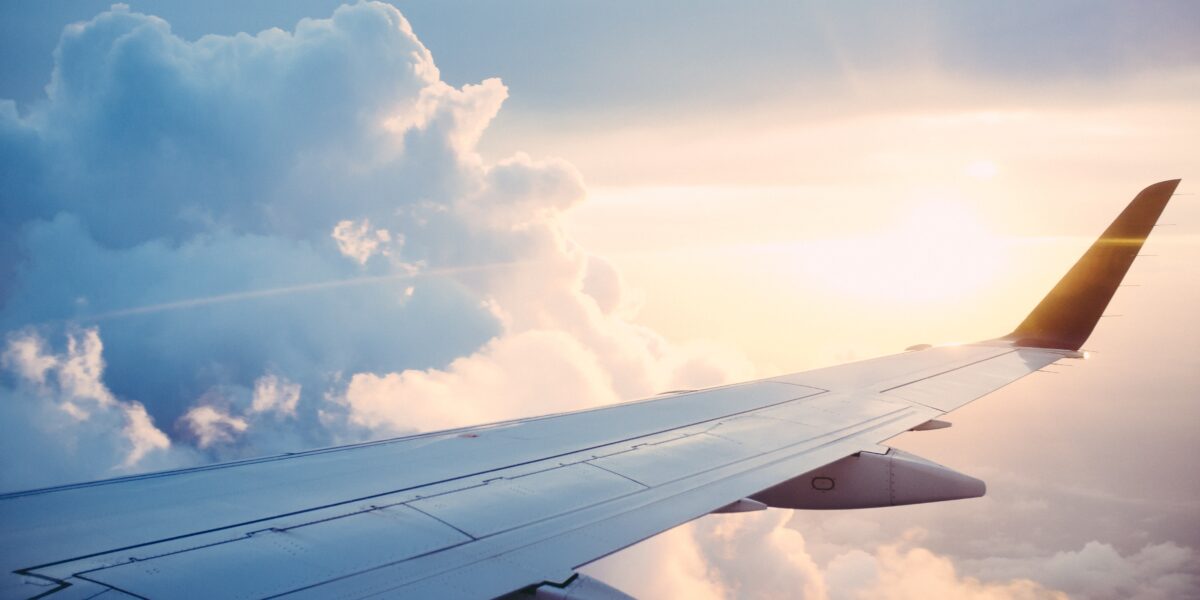We’ve all witnessed the social media glow-up of budget brands in the retail sector in the past few years – Colin vs. Cuthbert has become somewhat of a landmark case for long-standing brands adapting successfully to the niches of the internet. But buckle up because the rumours are true and there’s a new brand on the scene: Ryanair has been going viral on TikTok.
Yes, you heard correctly. The airline that everyone loves to hate is enjoying sky-high success with an enhanced social media strategy. From viral posts to self-deprecating banter, Ryanair are using social to extend and elevate their brand voice to new heights, getting consumers onside as well as tapping into a Gen Z audience. So, sit back, relax, and prepare for take-off as we take a look at how brands like Ryanair can spread their wings on social media.
The core of Ryanair’s TikTok strategy has been a commitment to funny, self-deprecating posts combined with expert navigation of viral trends. Whilst the former makes the brand feel down-to-earth and genuine to the consumer, the latter provides a baseline for high engagement on the platform. The brand’s most viewed TikToks have over 15 million views and most commonly feature filters and trending sounds, alongside witty captions that play into common consumer complaints around extra add-on charges, delayed or cancelled flights and lacking customer service. It’s a move that has delighted TikTok users on a platform which heralds those who can laugh at themselves.

One of the reasons this strategy has seen so much success is because it’s based on adapting an existing brand voice. Ryanair have always had a cheeky edge to their tone of voice, and are already known to flex this on other platforms such as Twitter, through sarcastic responses to complaints and playful engagement with other brands. The move to TikTok however, has elevated this to another level. As we know from our previous work with TikTok at TVE, as a platform it’s built for brands and creators that are disruptive and have a bit of an edge. This means that Ryanair has been able to ‘translate’ rather than remake their brand voice, adapting to rather than replicating the ‘language’ of TikTok, allowing them to fully engage in the conversations, trends and tone of the space.
The natural partnership between Ryanair’s existing brand voice and the dynamic of TikTok’s platform has the added bonus of making it difficult for competitors to replicate such success. Other budget airlines such as easyJet and Jet2 have tentatively employed a version of Ryanair’s strategy, engaging with trending sounds and filters with a softer tone. However, ‘tentative’ tends to be the enemy to engagement on TikTok where being bold and authentic is king. Similarly, more premium airlines such as British Airways are struggling to jump on the bandwagon. They gain some traction from using trends to provide an insider POV to a more luxury travel experience, however without an existing playfulness in their brand voice, adapting to TikTok’s dynamic struggles to come off as authentic and sees significantly less engagement.
As we prepare for landing, it’s clear then that Ryanair has become a bit of a trailblazer in the travel space, making it difficult for competitors to follow suit. They’ve shown the potential rewards at stake for brands that lean into new digital horizons, using their existing tone of voice to elevate their reach. But it’s also clear that this style of approach won’t work for everyone as so much of it relies on Ryanair’s existing alignment with TikTok’s more playful outlook. In the race to connect with passengers in ways previously uncharted, other brands by comparison will find it more of a struggle to weather the turbulence of this digital space.


